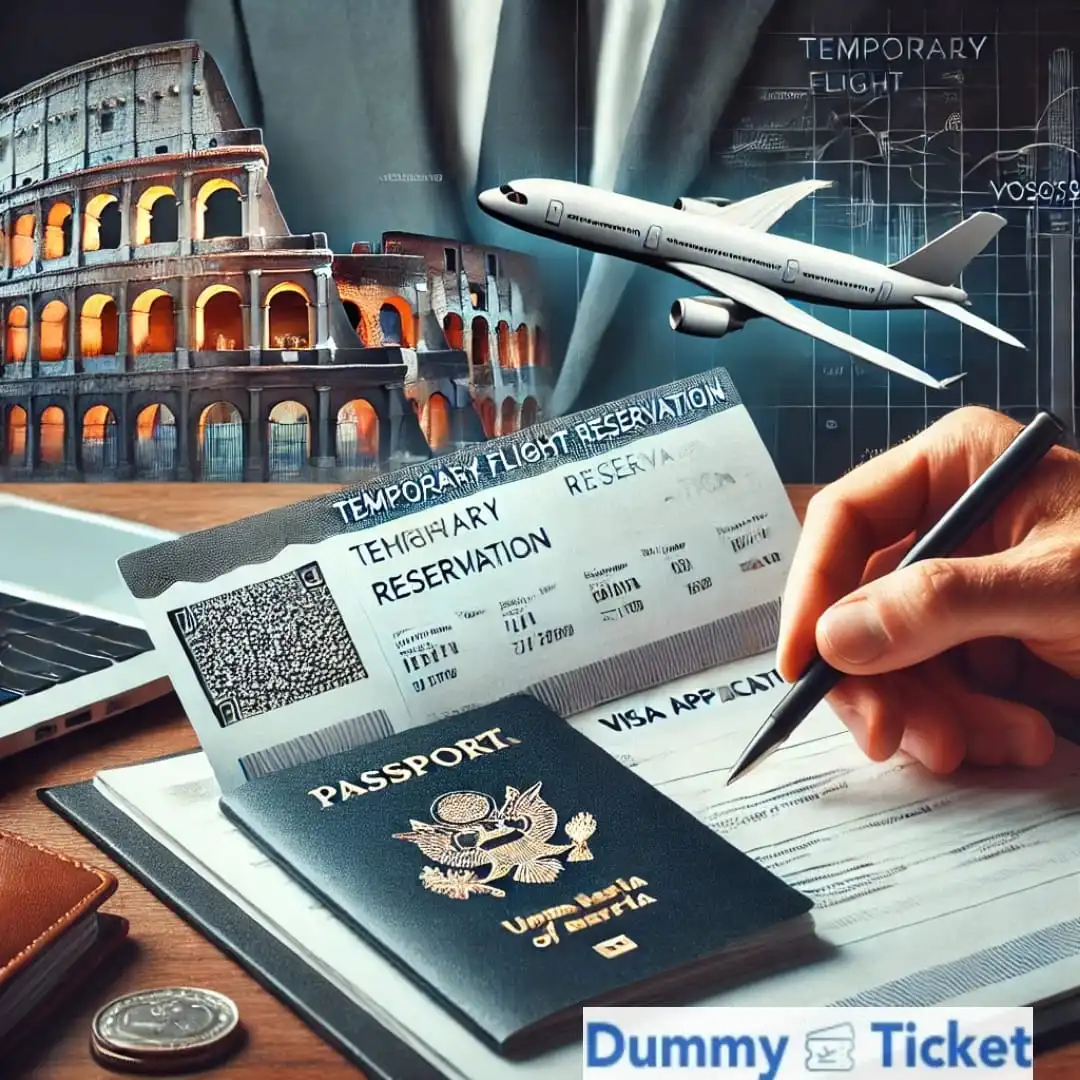types of Schengen visas for Italy
- Tourist Visa
For individuals who want to visit Italy for tourism, sightseeing, or vacation. - Business Visa
For those traveling to Italy for business meetings, conferences, or commercial activities. - Family or Friends Visit Visa
For visiting relatives or friends who are legal residents or citizens of Italy. - Medical Treatment Visa
For people seeking medical care or treatment in hospitals or clinics in Italy. - Short-term Study or Training Visa
For attending short courses, workshops, or vocational training that lasts less than 90 days. - Airport Transit Visa
Required if you're passing through an Italian airport en route to a non-Schengen country without entering Italy.
All of these fall under the Schengen Short-Stay Visa (Type C) and allow stays of up to 90 days within a 180-day period.
Business Visa to Italy: Your Comprehensive Guide
Italy, a country where history meets modern economy, stands as one of the most attractive destinations for business professionals worldwide. With its thriving economy and strategic location within the European Union, Italy represents a prime hub for trade and investment. If you plan to travel to Italy for business purposes, the Italy Business Visa (Business Schengen Visa) is what you need.
What is the Italy Business Visa?
The Italy Business Visa is a type of Schengen visa issued to individuals visiting Italy for specific business purposes. This visa grants its holder the right to enter Italy and other Schengen Area countries for up to 90 days within a 180-day period.
Required Documents for the Italy Business Visa
To ensure a successful application, you must submit a complete set of documents that demonstrate the purpose of your visit and your financial stability.
- Visa Application Form
- Download the form from the Italian embassy or the designated center's website.
- Fill it out carefully, ensuring all information is accurate and up to date.
- Passport
- Valid for at least three months beyond your planned departure date from the Schengen Area.
- Contains at least two blank pages.
- Include copies of pages with previous visas (if applicable).
- Passport Photos
- Two photos, size 35x45 mm.
- Taken against a white background, and no older than six months.
- Invitation Letter from the Italian Company
- A formal letter stating your name and the purpose of the visit.
- Details of the business relationship between you and the company.
- Information about who will bear the costs of your trip.
- Proof of Business Activity in Your Country
- A letter from your employer or company.
- Business documents such as a trade license or commercial registration certificate.
- Travel Bookings
- Confirmed round-trip Dummy flight Ticket.
- Hotel booking or proof of accommodation in Italy.
- Travel Health Insurance
- Coverage for your entire stay in the Schengen Area.
- Minimum coverage of €30,000.
- Proof of Financial Means
- Recent bank statements (last 3–6 months).
- Documents proving your ability to cover travel and accommodation costs.
- Visa Fee
Schengen visa fee is €80 for adults, payable upon application submission.
Steps to Apply for the Italy Business Visa
- Chedule an Appointment
- Visit the Italian embassy or an authorized center’s website in your country.
- Choose a suitable date and start gathering your documents.
- Prepare All Required Documents
- Ensure all documents are complete and meet the specified requirements.
- Organize them neatly in a clear file.
- Submit the Application and Attend an Interview
- On the scheduled date, visit the embassy or designated center.
- Be prepared for a personal interview to explain the purpose of your trip.
- Wait for Application Processing
- Processing typically takes 15–30 business days.
- You may be asked for additional documents during this period.
- Receive Your Visa
- If approved, collect your passport with the visa.
- If denied, you’ll receive a letter explaining the reasons for rejection and the steps to appeal.
Reasons for Obtaining a Business Visa
- Attending professional conferences and meetings.
- Negotiating or signing commercial agreements.
- Visiting companies or factories.
- Participating in trade fairs and business events.
- Building new partnerships with Italian companies.
Benefits of the Italy Business Visa
- Freedom to Travel Across the Schengen Zone
The visa allows you to enter Italy and travel freely to other Schengen countries. - Expanding Business Networks
Italy serves as a vibrant economic hub with opportunities to grow your market reach in Europe. - Flexible Stay Duration
The visa permits a stay of up to 90 days within a six-month period. - Streamlined Application Process
The process is clear and organized, with assistance available through embassies and authorized centers.
Reasons for Italy Business Visa Rejection and How to Avoid Them
- Incomplete Documentation
Submit all required documents accurately and completely. - Doubts About the Purpose of Visit
Ensure the invitation letter and supporting documents clearly define your business intent. - Insufficient Financial Evidence
Provide strong financial proof, such as bank statements and business records. - Negative Travel History
Any past violations of visa rules can impact your current application.
By following this comprehensive guide, you can enhance your chances of obtaining an Italy Business Visa and enjoy a productive business trip to one of Europe’s most dynamic economies.
Tips to Increase Your Chances of Getting the Visa
- Apply Early: Submit your application at least two months before your planned travel date.
- Accuracy in Information: Ensure all information matches across submitted documents.
- Clear Itinerary: Provide a detailed schedule outlining your visit (dates, activities, meetings).
- Communicate with the Host Company: Ensure that the Italian company is prepared to provide any additional support if the embassy requests it.
What to Do After Receiving the Visa?
1. Plan Your Trip
- Set a timeline for business activities and meetings.
- Keep copies of all documents submitted to the embassy with you while traveling.
2. Respect Visa Rules
- Stick to the permitted stay duration (maximum 90 days).
- Do not use the visa for purposes other than what it was issued for.
3. Build Business Connections
Take advantage of the opportunities in Italy to strengthen your business network.
Frequently Asked Questions about the Italy Business Visa
- Can I use the visa for tourism?
Yes, you can visit tourist sites during your stay, but your primary purpose must be business. - How long does the application process take?
Typically, it takes around 15–30 business days. - Can I apply for a multiple-entry visa?
Yes, if you need to make multiple visits, you can request a multiple-entry visa with valid reasons.
Obtaining an Italy Business Visa might seem complex, but it is an organized process if you follow the instructions carefully. Preparing the required documents diligently and adhering to procedures will increase your chances of a successful application.
Whether you're aiming to expand your business or build new partnerships, Italy offers a fantastic environment to support your business ambitions.
Pros and Cons of the Italy Business Visa
The Italy Business Visa is ideal for individuals traveling for business purposes, such as attending conferences, meetings, and trade negotiations. However, like any visa, there are pros and cons that you should consider before applying. In this guide, we will review the pros and cons of this visa to help you make an informed decision.
Pros of the Italy Business Visa
- Freedom of Movement within the Schengen Area
A major benefit of the Italy Business Visa is that it allows its holder to travel across the entire Schengen Area. This means once you have the visa, you can easily visit any Schengen country without additional visas during your allowed stay. - Flexible Stay Duration
The business visa allows for stays of up to 90 days within a 180-day period, providing flexibility for planning business activities and meetings over a long duration. This is ideal for business professionals who need time to build partnerships or negotiate contracts. - Expanded Business Opportunities
Italy is one of the largest economies in the EU and a key destination for trade and investment. Visiting Italy offers a chance to strengthen business relations, attend trade fairs, and participate in joint ventures with Italian companies. This visa offers an opportunity to broaden your business network. - Simple Application Process
The process for obtaining an Italy Business Visa is relatively straightforward compared to some other types of visas. Once the required documents are ready, you can submit the application through the Italian embassy or an authorized center in your country. The set schedule also makes planning and coordination easier. - Multiple-Entry Visa Option (If Requested)
If you plan to make multiple trips to Italy or other Schengen countries, you can apply for a multiple-entry visa, allowing you to return to Italy or any Schengen country after leaving. This is ideal for business professionals who need frequent travel. - Short-Term Visa Option
The Italy Business Visa is a short-term visa, making it suitable for those who don’t require extended stays in Italy. If your goal is to conduct a series of meetings or business activities over a short period, this visa is the most appropriate.
Cons of the Italy Business Visa
- Slightly Complex Application Process
While organized, the application process requires numerous documents, which may be complicated for some. Applicants need to provide financial records, formal invitations from Italian companies, and other documents, which can be overwhelming for some. - Approval Depends on Document Quality
A key downside is that approval heavily relies on the quality and accuracy of the submitted documents. If documents are incomplete or unclear, your visa application may be denied. Therefore, it’s essential to carefully prepare all necessary documents. - Restrictions on Personal Activities
Although you can use the business visa for informal tourism, its primary purpose is business. Travelers may face challenges if found to be using the visa solely for tourism. - Requirement for Financial Support Proof
Applying for a business visa requires proof that you can cover your travel and stay costs in Italy. If you have any financial issues or cannot provide adequate supporting documents, your visa might be denied. - Processing Delays
At times, you may experience delays in the processing of your visa application. While the usual processing time is 15 to 30 days, some cases may take longer, causing pressure on your travel plans. - Time Limitations on Stay
Although the visa allows the holder to stay for 90 days within a 180-day period, this remains a relatively short duration. If you need to extend your stay, you must provide a strong justification, and such extensions are often denied. - Strict Conditions for a Multiple-Entry Visa
While you can apply for a multiple-entry visa, this requires substantial proof of your need for such a visa (e.g., frequent visits to Italy or other Schengen countries). This can be challenging for individuals who cannot clearly justify the need.
Business Visa to Italy: Opportunities and Challenges
The business visa to Italy provides many opportunities for entrepreneurs looking to expand their commercial activities in Italy or the broader Schengen area. From its benefits, such as freedom to travel within the Schengen Zone and flexible duration, to its challenges, like the need for meticulous and complex documentation, applicants must be prepared to meet the visa requirements effectively.
To ensure successful visa approval, it is crucial to prepare your documents carefully and adhere to the business purpose of your visit.
Importance of a Dummy Flight Ticket for a Business Visa to Italy
A Dummy flight ticket is one of the essential components when applying for a business visa to Italy. Although it is not the sole factor for visa approval, it significantly supports your application and enhances its credibility before the Italian embassy or consulate. Below, we discuss the importance of a Dummy flight ticket in this context.
- Demonstrating Serious Intentions
A Flexibility for Changes and Cancellations serves as proof of your serious intentions to travel to Italy. By presenting a reservation, you show that you have planned your trip thoroughly, including travel and accommodation dates. This reassures the Italian embassy that you intend to return to your country after completing your business activities in Italy, minimizing the risk of overstaying. - Documenting Specific Travel Dates
A Dummy flight ticket ensures consistency between the travel dates mentioned in your visa application. It specifies when you plan to leave and return to your country, helping the Italian authorities verify that your stay in Italy aligns with the visa’s conditions, typically 90 days within a 180-day period.
Example:
If you plan to visit Italy in early January and return by the end of the same month, a Dummy flight ticket clearly shows these dates, reinforcing your compliance with the visa's stipulated duration. - Essential for Visa Application
One of the primary reasons a Dummy flight ticket is crucial is that it is a mandatory document for obtaining a business visa to Italy. The Italian embassy requires proof of your scheduled travel plans, and a Dummy ticket serves as evidence that you have arranged transportation and outlined your trip itinerary.
How it Impacts Approval:
A Dummy flight ticket demonstrates your commitment to your travel plans.
It increases your chances of visa approval, particularly if all other documents are accurate and complete. - Flexibility for Changes and Cancellations
A significant advantage of a Dummy flight ticket is its flexibility. You can cancel or modify the reservation if your visa is denied or your plans change. Since you are not required to pay the full ticket price upfront, you can make these adjustments without incurring substantial financial losses.
Key Benefits of Flexibility:
Free cancellations: In case of visa rejection, you can cancel the reservation without incurring heavy charges.
Avoid financial risks: Dummy flight ticket allow you to avoid significant financial burdens in case of visa refusal. - Proving Intent to Return
The Italian embassy places great importance on evidence that you will return to your country after completing your business in Italy. A Dummy flight ticket, including a return ticket, explicitly shows that you plan to leave Italy within the permitted time frame.
How the Reservation Helps:
A return ticket highlights your intention to depart Italy after your business visit, adding credibility to your application.
It reassures authorities that you will not overstay beyond your visa’s validity. - Expediting Processing and Enhancing Your Application
Including a Dummy flight ticket in your visa application can speed up the processing time. The Italian embassy or consulate needs to see proof of a well-organized travel plan, and a Dummy flight ticket is an efficient way to provide this evidence. Having all necessary documents, including a Dummy flight ticket, makes your application smoother to process. - Supporting Financial Stability
While a Dummy flight ticket does not directly prove financial stability, presenting one demonstrates that you have organized your trip efficiently. If the embassy requests financial proof, combining the flight reservation with other supporting documents shows that you have accounted for travel and accommodation expenses responsibly.
A Dummy flight ticket is an indispensable document that supports a business visa application to Italy. It plays a vital role in proving your travel intentions, documenting specific travel dates, and providing flexibility in case of visa rejection. Additionally, it helps establish your intent to return to your home country, thereby increasing the likelihood of visa approval.
The Role of a Dummy Flight Ticket in the Italian Business Visa Application
When applying for an Italian business visa, a Dummy flight ticket is a mandatory requirement alongside other documents. But how does this reservation relate to the business visa application process, and how can it impact your chances of success?
Why the Embassy Requires a Dummy Flight Ticket
The Italian embassy or consulate requests a Dummy Flight Ticket for several reasons tied to verifying your travel intentions:
A) Proving Serious Intentions:
A Dummy Flight Ticket assures the embassy that you intend to travel and do not plan to overstay illegally.
B) Specific Travel Dates:
The reservation reflects the travel dates specified in your application, ensuring consistency and adherence to the visa’s validity period.
C) Commitment to Return:
A return ticket in the reservation indicates your intention to leave Italy once your business activities are completed.
Including a Dummy Flight Ticket in your business visa application can significantly enhance its credibility. It demonstrates that you have planned your trip responsibly and that you intend to comply with visa conditions, making it an invaluable tool for securing a business visa to Italy.
The Italy Business Visa is granted to individuals traveling for business purposes such as attending meetings, conferences, or negotiating contracts in Italy . Applicants must provide an official invitation from an Italian company, proof of business activity in their home country (like a commercial registration or company license), hotel reservations, health insurance, and a letter explaining the purpose of the visit. This visa does not allow employment or long-term stays but is ideal for short business trips. Processing usually takes 10 to 15 days. The business visa opens the door to promising investment and networking opportunities in the European market!




